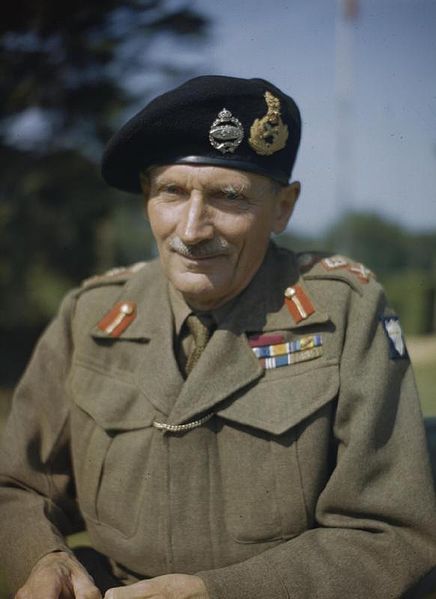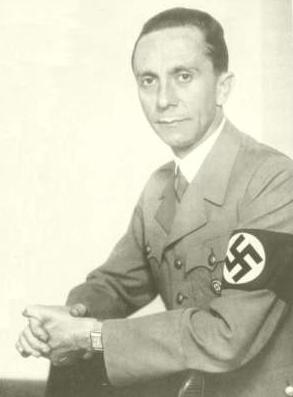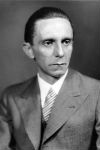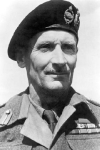My Visit to Wartime Holland
By Captain Norman MacMillan, M.C., A.F.C.
The War Illustrated, Volume 9, No. 207, Page 36-37, May 25, 1945.
Control of the waterways is so important in Holland that a Government minister of public works (Waterstaat) is responsible for this feature of Dutch life, and each district in Holland has its own waterways engineer. In the area around Nijmegen and Arnhem, where flow the Maas, the Waal and the Neder Rijn, the problem is aggravated by the very low level of the land contained within the courses of the three rivers, known as “the island”. During the late winter, when the rivers are in flood, their water level may run twenty feet above that of the surrounding countryside.
The Germans had blown the dykes to flood the flanks of the British positions east of Nijmegen. Here was a great inland sea. Between Krannenburg and Beek (Dutch railway frontier town) it washed right over the road, but vehicles continued to drive through it with great bow waves sending the water rippling in all directions. On the opposite side of the road the ground rose to a wooded hull clear of the flood; there summer villas stood untouched by war or flood, but without occupants.
Facing the river I surveyed a scene of desolation. Water rushed through a gap in the dyke that ran outwards from the road like a breakwater. Some houses were almost submerged. Villages that stood on slightly higher ground were cut off like islands. Greenhouses showed their top lights above the water. The upper framework of a glider rose from the water half a mile away, like the skeleton of an antediluvian monster. A church spire stood sentinel amid the waters half-way between us and Germany, over there beyond the Rhine.
A squadron of buffaloes, returning from patrol, came splashing roadwards from the east. Seated in one were two prisoners of war who looked both materially and spiritually damp. In all were British troops whose land tanks had been caught by the floods. The amphibious tanks churned their way over the water with the thrust of the little cupid's bow-shaped steel paddles that projected transversely from their tracks; when they reached the land these paddles gripped the mixture of gravel and mud and hauled the buffaloes on to the tar macadam road. They were manned by cheerful Canadians, who said they would rather go to battle in buffaloes than in any other way.
Amphibians Foiled the Germans
Each buffalo is a self-contained unit with one officer and its crew; there is a large open-well interior, wherein there is plenty of room if not much comfort, and crews can eat and sleep aboard. They are lightly armed with cannon and machine-guns. With the Ducks (wheeled vehicles driven on the water by a screw propeller) these amphibians foiled the German attempt to break the 1st Canadian Army flank by flooding, and made the flooded area more of a nightmare to the Germans than ourselves. Later they were the spearhead that crossed the Rhine. The only infantry I saw on the march in this zone were the sections of a company of Canadians moving up in single file to join the buffaloes and go into action with them. All the other troops rode to war.
After driving along the flooded road our car engine died, due to a flooded ignition system. After an abortive attempt to cure the trouble on the roadside, we were nosed out of a traffic jam we had created by a little armoured scout car, whose driver then tried to start us up by towing, but without success. A M.T. section in the woods could not help us, and the car had to be towed back to Nijmegen, where a mechanic who knew the engine design stripped the distributor and dried it so that the plugs would spark.
Meanwhile, I walked into Beek with R. J. Montgomery of the B.B.C. Two Free Dutch soldiers guarded the Customs control post. For us there were no formalities; for those in civilian clothes there were. (In many parts of Holland I saw Dutchmen on road control work, some wearing only armlets to indicate they were traffic controllers.) Beek was surrounded by 25-pounder guns that barked incessantly from between the houses, among the trees, beside the floods.
The prisoner-of-war cage – in this case an erroneous term, for there was no wire – was in the restaurant of a small hotel that stood back from the road; a wood building with a veranda. The room was bare, with painted wood walls. On a raised portion of the floor, where, perhaps, once a band had played in peacetime, about 40 Germans soldiers sat on benches. They were mostly young men up to 20 years, but about a quarter of their number were oldish men. All looked extremely docile. The Canadian sergeant, who spoke German, said they had had one very arrogant chap earlier.
To the right, on the lower floor, two German officers sat on chairs. One, tall and fair-haired, wore a voluminous macintosh and a peaked cap. The other, shorter and swarthy, was coatless, rather dapper despite his unshaven chin, dressed in tunic, breeches and field boots, with a forage cap; he smoked a pipe. Both belonged to the infantry. Their clothes were soiled with dried mud. About every minute the room shook like a jelly when a 25-pounder fired just outside.
Montgomery, an Afrikaans-speaking South African, had been in Germany before the war and spoke fluent German. I do not speak fluent German, but I understood most of what was said. Both men went straight from school to the army. They were now 23 and had known nothing in adult life but war. From the age of about 10 they had been schooled in the Nazi outlook, and one certainly had it indoctrinated within his mind; the other seemed puzzled by its results, and was less assertive about its values, but nevertheless it obviously affected his judgement.
One had fought two years and a half on the Russian front, and said he was happier to be taken prisoner in the west. As he talked he grew more vehement, especially about German lebensraum. The Sudetenland, Danzig and Memel were German; the souls of Danzigers had cried out to belong to the Reich. It was wrong that Germany had been forced into war because she desired only what was German. That was his theme. These two men could see no viewpoint but their own. The silent one nodded approval of all his comrade said. They had no thought for the nations ravished by the Wehrmacht. All was reserved for Germany, past, present, and future. They said that if the war would only finish, and the Germans were allowed to go back to Germany, they would soon rebuild everything that had been destroyed there.
I said to them, “We once had a king who came from Herrenhausen, so by your argument Hanover should belong to Britain!” The macintosh-clad officer, who appeared to know as much English as I knew German, laughed and translated to his companion, who shrugged his shoulders. They said they knew Germany could not then win the war, but as the Allies would give the Germans no terms they must go on fighting to the end. By doing so they would lose no more, and might gain something. At least the Allies would have to pay for their policy. How Goebbels would have applauded his disciples!
A lorry drew up outside. The Canadian sergeant ripped out a command. The German soldiers rose and ran to the door and stopped in a bunch just inside. Then they got the order to get in. They scrambled quickly on to the lorry, and stood packed tight one against another in its open truck. The officers ended their conversation, rose, bowed, and left the room, climbed into the cab beside the driver, and that group of prisoners left the forward cage.
Nijmegen, with 81,686 population, is the largest town in Gelderland. For a Dutch town it stands high, on a slope that rises steeply from the south bank of the Waal, and on the level ground above. The old town, has narrow streets and close-set houses, the newer part wide roadways and spacious gardens. It has seen war throughout the centuries. Captain Churchill of the Grenadiers – later the Duke of Marlborough, ancestor of our present Premier – attracted the attention of General Turenne by his bravery at the capture of Nijmegen in 1672.
The scout car driver stopped on a rising street outside a row of houses to ask where the M.T. depot was, and, as usual, some Dutch children came up to look into the car. One boy of about eight – Toni Neppelbuerger – said he and his younger sister slept in the loft at the top of the three-floored house he pointed out. Toni said he was afraid of nothing, not even when two nights before the bombers came and went “boom-boom!” – the night when Bomber Command bombed Cleve. While the car was being serviced, another Dutch boy came up to ask if we needed billets. He said his mother had a room that could sleep ten. They were expecting Canadians, who so far had not arrived, so if we were held up he proudly announced that we could have a room to sleep in there.
Nijmegen was packed with men, armour and transport. Tanks and trucks stood in every side street. Long lines of vehicles, guns, and their attendant soldiers moved through the town. What a target for night bombers! Cleve and Goch must have been like that when our heavies struck. Here, in Nijmegen, but for the sound of our own guns, and as night fell the motionless searchlight fingers that cut the sky as direction markers for night patrols, there was little to suggest that one was in a front line town.
A NAAFI canteen and an ENSA cinema were housed in one building that must have been a place of amusement before the war. The canteen was a rotunda. There was scarcely a vacant seat. Dutch girls worked at the counter and in the kitchen and served the tables. Montgomery and I joined two soldiers at a table. For them and ourselves we ordered four cups of tea, and ten finger-roll sandwiches for the car journey we had still to make; for these we paid one Dutch guilder 45 cents – two shillings and eightpence-halfpenny at the ruling rate of exchange. We were asked to produce paper to enwrap our sandwiches for the car.
Previous and next article from Seeing the War at First Hand
In the Wake of the Victors
Many of the roads in Belgium and Holland are surfaced with stone, cut in the shape of cubes and laid close together, without mortar or cement, on top of the levelled soil. Such roads stand up reasonab
Along the Crowded Roads of War
In this, the last article of this series, I will describe briefly some of the many things I saw for which there is no space to give a full description. Follow me in imagination on long journeys across
Index
Previous article
In the Wake of the Victors
Many of the roads in Belgium and Holland are surfaced with stone, cut in the shape of cubes and laid close together, without mortar or cement, on top of the levelled soil. Such roads stand up reasonab
Next article
Dramatic Last Days of the War in the West
With bated breath the civilised world awaited the final dissolution of the Third Reich, which Hitler had boasted was to endure 1,000 years. One by one, day by day, the ignoble figureheads in this trag







